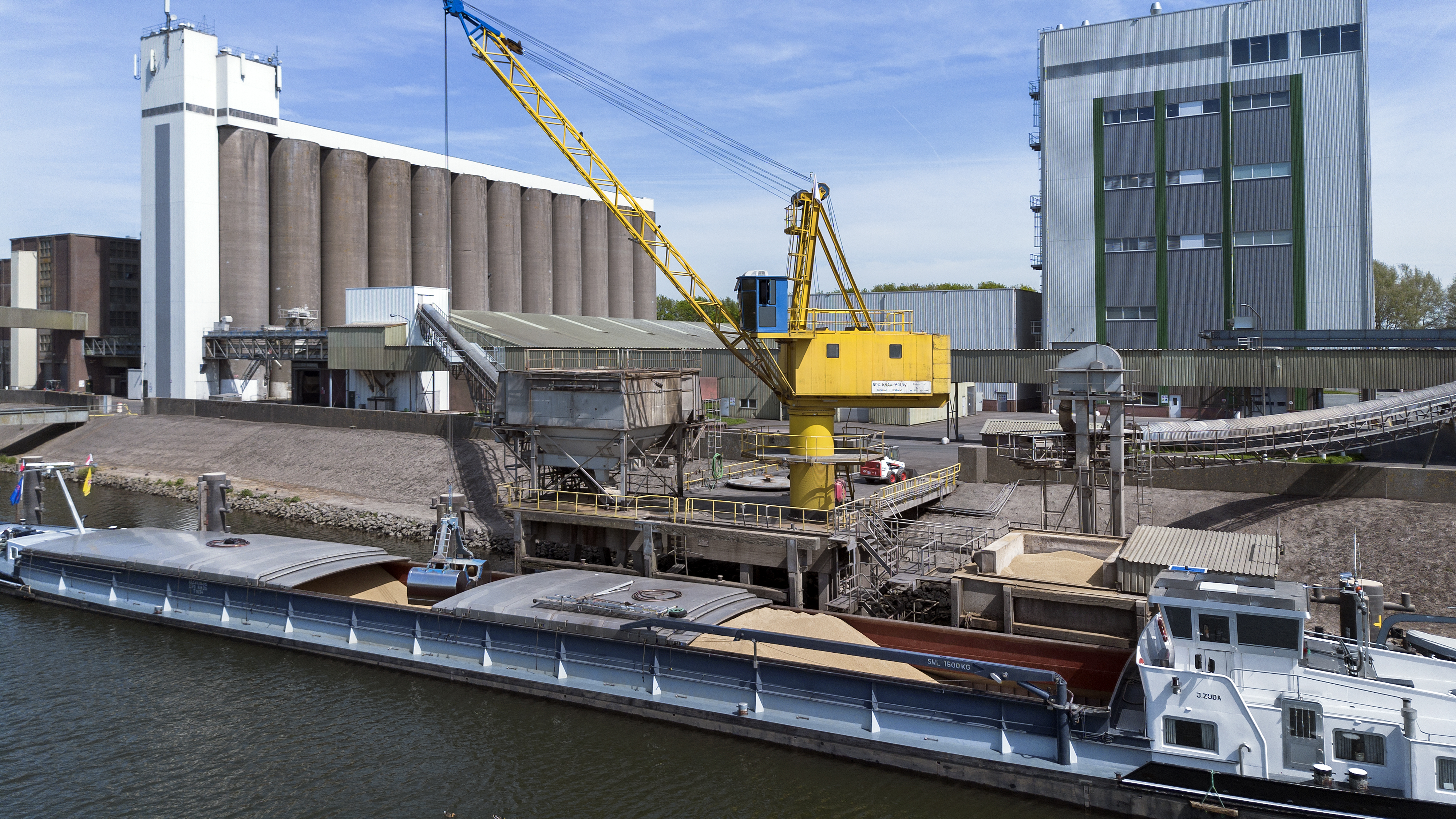Priority 1. Sustainable raw materials
Ensuring that its soy is responsibly sourced is an absolute must for any organisation committed to a future-proof and sustainable food chain. This is why FeedValid invests in sustainably produced soybeans for all the products in its soy range, or opts for soybeans from areas with no risk of tropical rainforest deforestation.
Taking responsibility
“We like to be ahead of the curve, especially if there are ways of producing soya more sustainably and without any deforestation. As a producer of animal feed ingredients, we are very keen to take responsibility. One of our five priorities is for no less than 85% of our raw materials to be of European origin by 2025,” says FeedValid’s Chief Commercial Officer Mark Brokking. “We will be achieving this by, on the one hand, looking for local alternatives to soy. We recently partnered with the processing company Grassa to market grass proteins, for instance. But on the other hand, we’re realistic and know that we will still need to be partially dependent on soy imports in the years to come.” “If we’re unable to source raw materials from nearby, we will be ensuring that they’re as sustainable as possible,” adds Sales Manager Marien Uittenbogaard.
Fully transparent
The AceTrack programme marks a clear step forward in sustainability. Soybeans from the AceTrack programme are grown only on land on which there has been no deforestation in the past 15 years. The cut-off date is 2008 and that is the most favourable and environmentally friendly year available on the market, lowering the carbon footprint for our soy products,” explains Brokking. The entire production process is fully transparent. Uittenbogaard: “The quality of the programme is guaranteed through the use of cutting-edge satellite technology and environmental registry data from thousands of farms in South America. The other usual checks are, of course, also carried out. We know exactly which route the soy has taken because everything is traceable. Through the AceTrack programme, we also comply with social working conditions and can be sure that no child labour was involved in production.”
Impact at farm level
To avoid any unnecessary costs in the supply chain resulting from full segregation, the proven mass balance method is used. “There’s still not enough global demand for sustainable soy, so mass balance involves storing and shipping certified soy together with conventional soy to some extent. It’s a solution that isn’t ideal, but looking at all the available options for buying soy sustainably, this is certainly the best compromise in terms of sustainability, workability and affordability. Mass balance allows us to make an impact at farm level, with the money going to the country the soy comes from,” says Brokking. “That’s exactly what we want: it means we get reliable information about the soy’s origin and the product process with the guarantee of more sustainable soybeans.”
Making a statement to the chain
“Too often, price still seems to be the deciding factor in the market. And that’s a missed opportunity. Many parties opt not to buy sustainable soybeans, or do so only based on credits. That’s the most inexpensive way, but at the same time, it’s also the least transparent and effective solution. FeedValid is keen to take the next step now, despite there being little direct demand from our customers. This means we’re making a clear statement to the supply chain,” says Marien Uittenbogaard.
Want to find out more about FeedValid’s five sustainability priorities? Visit https://www.feedvalid.eu/nl/5-prioriteiten/
Pfoto caption:
FeedValid receiving its first shipment of AceTrack-certified soybeans.



